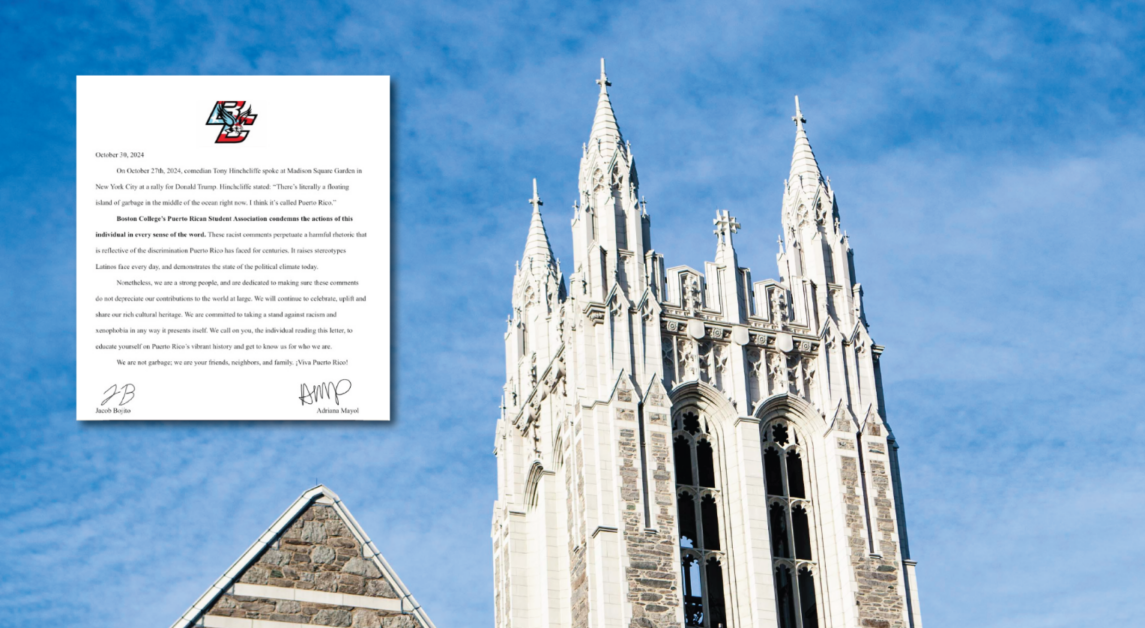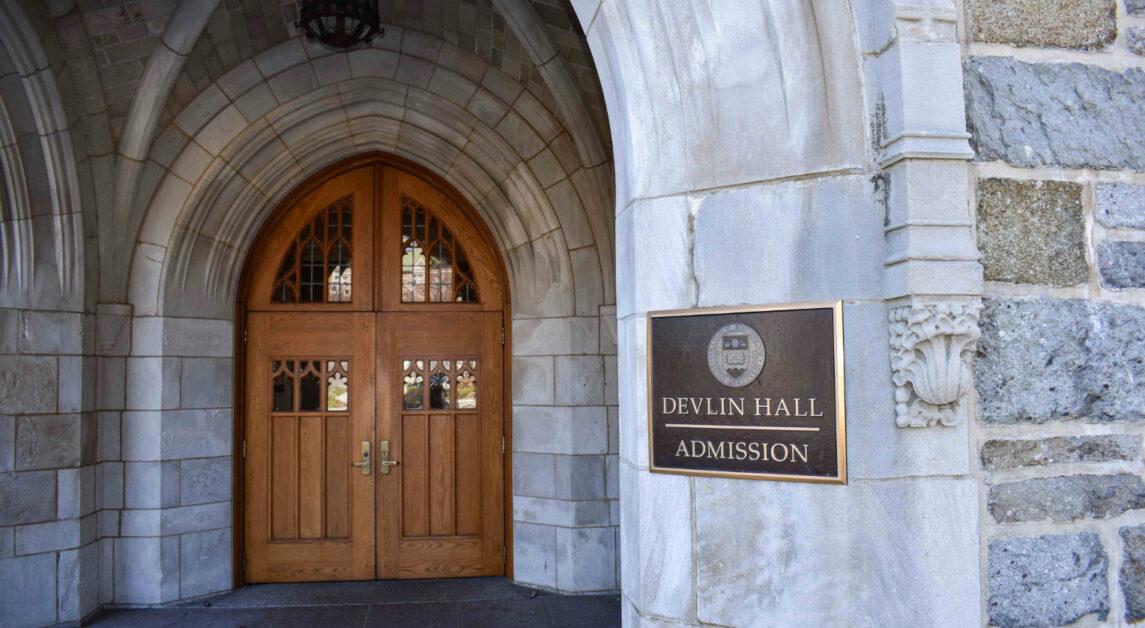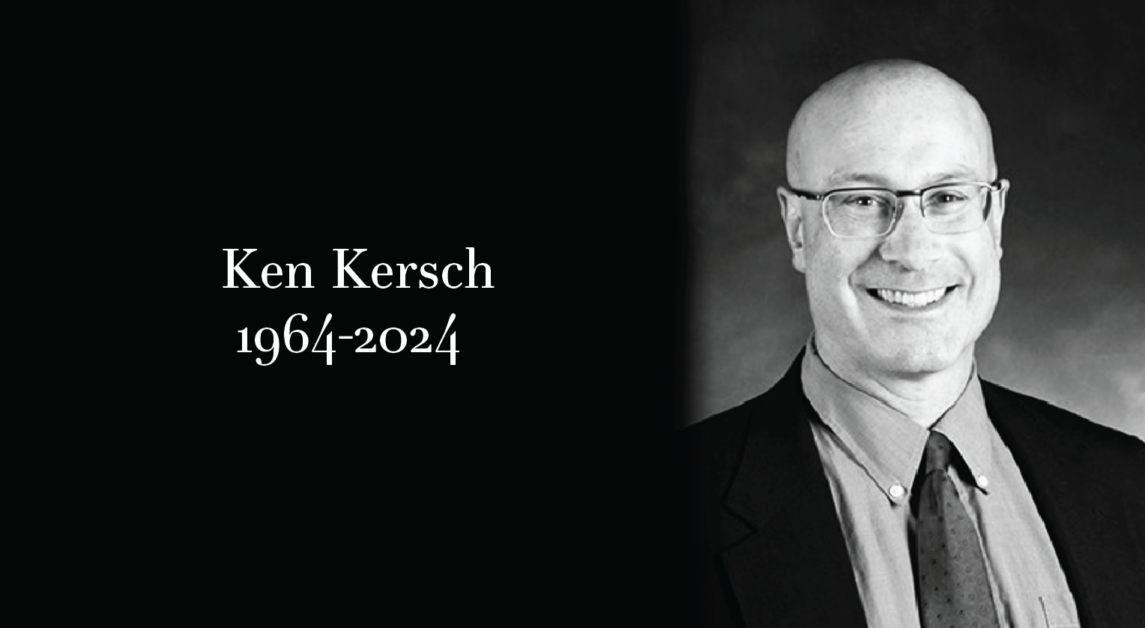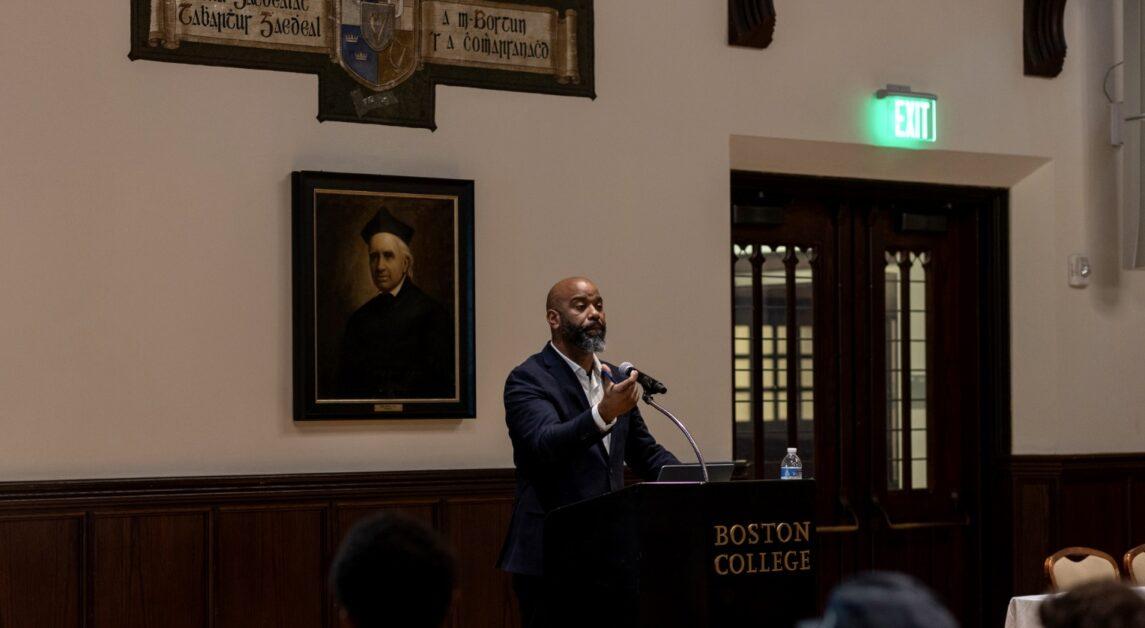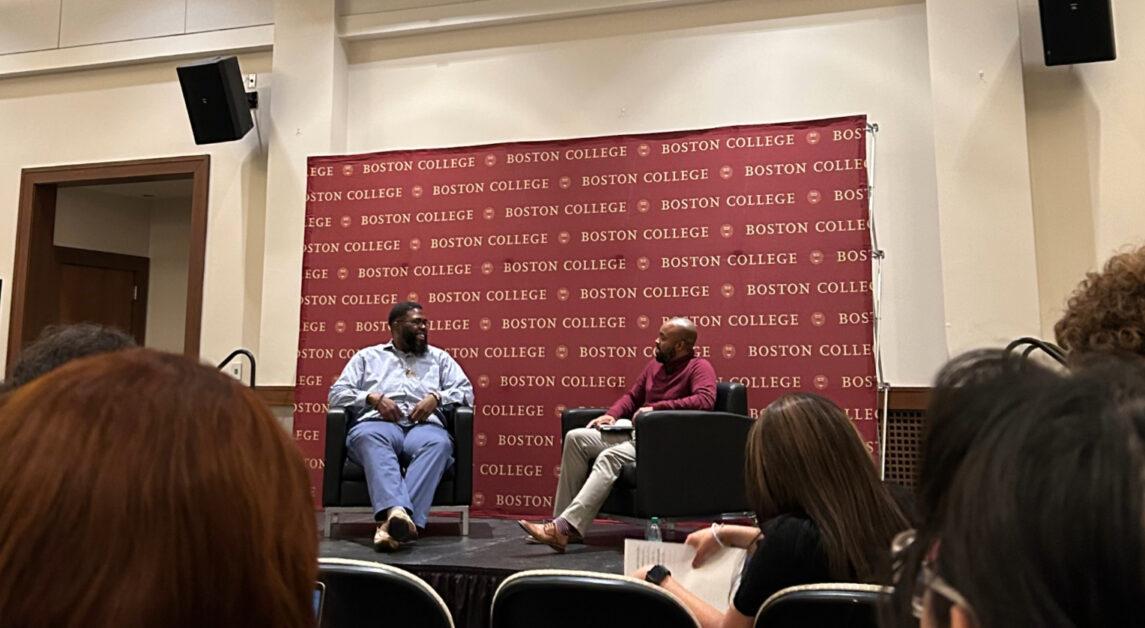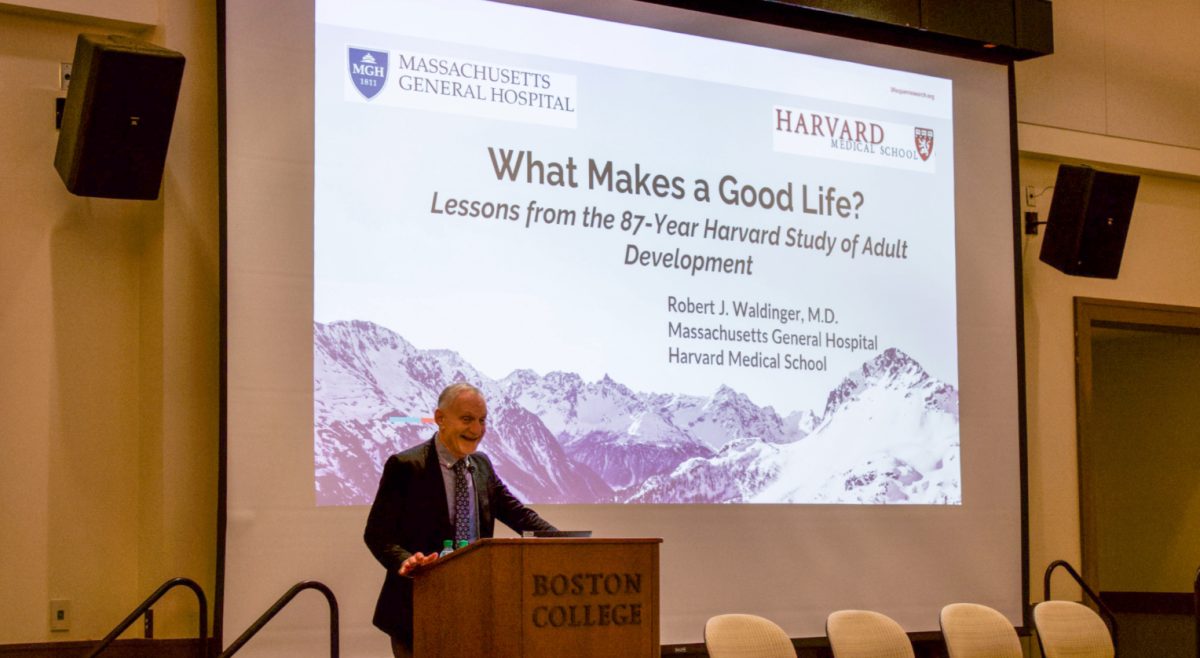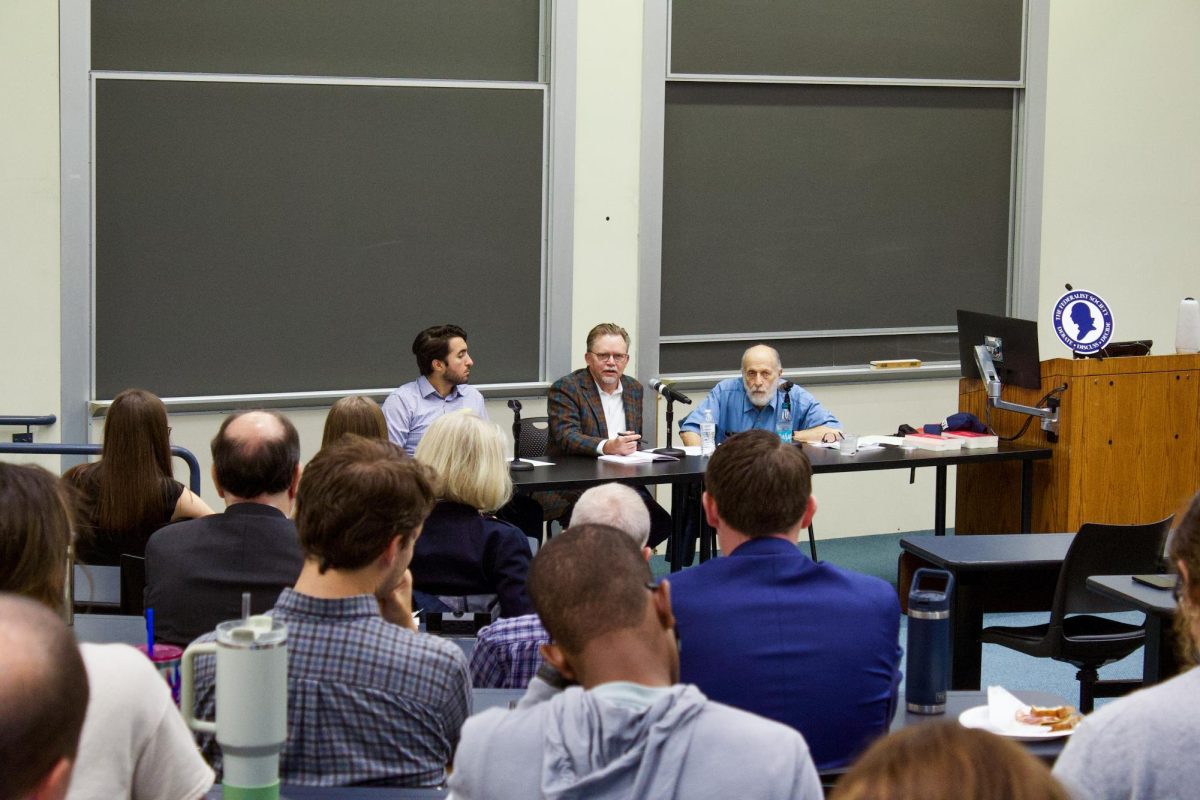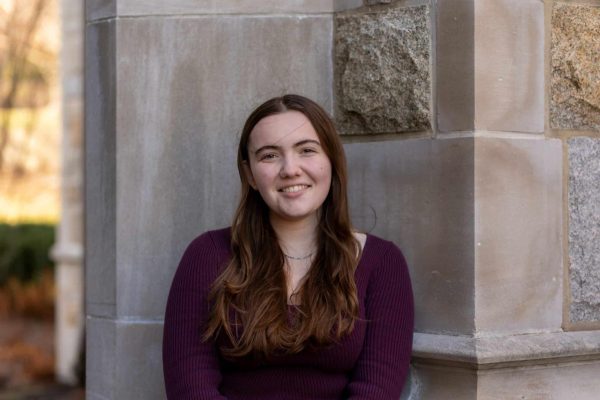The Boston College Puerto Rican Student Association (PRSA) issued a statement on Oct. 30, condemning remarks made by comedian Tony Hinchcliffe. Hinchcliffe spoke at former President Donald Trump’s rally at Madison Square Garden on Oct. 27.
“There’s literally a floating island of garbage in the middle of the ocean right now—I think it’s called Puerto Rico,” Hinchliffe said at the rally.
In the statement, the PRSA emphasized that Hinchcliffe’s remarks “perpetuate a harmful rhetoric that is reflective of the discrimination Puerto Rico has faced for centuries.”
Adriana Mayol, co-president of PRSA and MCAS ’25, said she was appalled after first hearing Hinchcliffe’s remark.
“My instant reaction was, ‘Why, where, what was the context?’” Mayol said. “And then I saw that there was no context to it, and so I was like, ‘There’s no need.’”
Mayol and Jacob Bojito, the other co-president and MCAS ’25, said that passing off harmful and racist rhetoric as a joke allows the individual to be viewed as blameless.
“They can say, ‘Oh, it was a joke,’ and brush it off as if the joke isn’t perpetuating racist ways of thinking, as if it’s not bringing up things that people live with on a daily basis,” Bojito said.
For many Puerto Ricans, Hinchchliffe’s statement wasn’t a joke, according to Bojito, and the passing off these remarks as jokes “is dismissive of the reality that Puerto Ricans have lived.”
“We have been referred to as things a lot worse than garbage,” Bojito said. “People have treated us like second class citizens since our island was annexed to the United States, and this is kind of just, again, [is] something that reflects something that has existed for so, so much, so much longer.”
Racist jokes have no place at a political rally, according to Mayol—regardless of the party.
“I do think that these racist jokes just perpetuate this allowance of these jokes to be made, and normalizing them in no way moves us forward as a community and as a country,” Mayol said.
Mayol emphasized that these statements and jokes reflect an ongoing trend in the country, which creates a cycle of frustration and anger for many Puerto Ricans.
“The connotation of it is always in a demeaning and in a very kind of diminishing and discriminatory way where we’re not sensitive, we are just sick of it and hearing this rhetoric of us be said over and over and over for the past 100 years,” Mayol said.
Bojito said these types of racist comments are harmful to the Puerto Rican community because, for some, it is their only impression of Puerto Rico and warps their view of the island.
“When people haven’t met us and haven’t given us a chance, that’s kind of like their first impression of us, and now we have to deal with that,” Bojito said. “And kind of like now, now we have the burden of showing that we’re not that, when that’s not fair at all.”
Bojito said he wasn’t immediately surprised by the comments. Rather, his mind went to his family and the undecided Puerto Rican voters.
“I was not surprised at all, personally, so I guess my immediate thoughts were to check in with my family, of course, and make sure they were responding well to what had been said,” Bojito said.
Bojito said that hearing this rhetoric is a reminder of how divided the country is and how much more the United States needs to do to achieve unity.
“We’re moving in a better direction, but that just reminds us that we have a lot more work ahead of us before we can become the United States that a lot of people think that we live in,” Bojito said. “I feel like the United States on paper is a lot different versus the United States and how it actually is.”
When faced with comments and hate, Bojito’s biggest advice to Puerto Rican or Latino students who are struggling is to not let racist individuals’s comments define them.
“You have a bunch of other people who know exactly who you are, and that over time, you’ll be able to prove those remarks wrong again and again and again,” Bojito said.
The way in which the United States teaches history and the lack of education about the history of the places the United States has colonized plays a big role in perpetuating the misinformation about Puerto Rico, Bojito and Mayol said.
”I never learned about the United States’ relationship with Hawaii, I never learned about the United States relationship with Puerto Rico,” Bojito said. “And so one thing about that is you sort of internalize that your history is not as important as their history. You feel like, sort of like an other.”
Mayol said the misinformation about Puerto Rico creates division and stigmas about the island, preventing Puerto Rico from having representation in the United States and equitable access to resources.
“It prevents politicians [from wanting] to associate themselves with Puerto Rico, and then that prevents us from having equal sources and equal resources,” Mayol said.
Although he is glad that this instance was widely publicized, Bojito emphasized that this isn’t a one-time occurrence, and more hurtful things are said about people of color.
“I’m happy that everyone was able to respond to it and understand, like, that was wrong,” Bojito said. “But just to let people know this, this is not like even the worst of it and this is not a one time thing that, like we just corrected now. This has been going on for a long time.”

